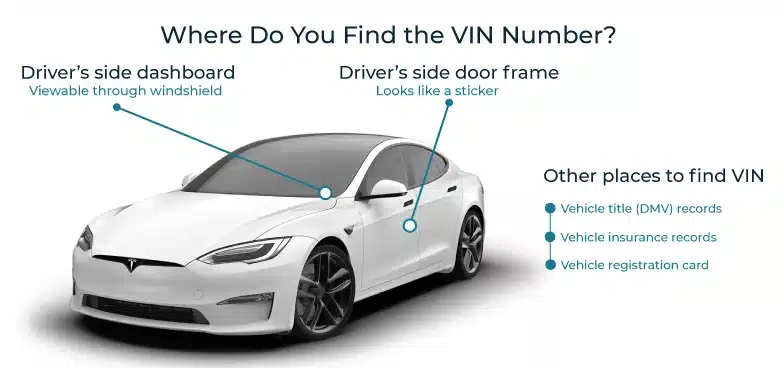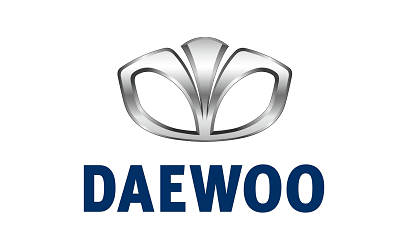
Daewoo Recall Check
The Daewoo Recall Check tool offered by Detailed Vehicle History provides a quick and reliable way to check if a Daewoo vehicle has any outstanding recalls that need to be addressed. With this tool, you can ensure that a vehicle is safe and up to date with the latest safety standards. Try it today!
What is a Daewoo Recall?
A Daewoo Recall is a safety notice issued when defects are found in Daewoo products. For instance, in 2010, GM Daewoo recalled over 58,000 vehicles in South Korea due to safety concerns.
The VIN-lookup tool shows incomplete safety recalls for the last 15 calendar years, so older vehicles may not show historical campaigns, even though those campaigns happened. Daewoo Recall Check by Detailed Vehicle History can search recall history from classic cars, even for the cars that have classic VINs (fewer than 17 characters).
Why Checking the Daewoo Recall History is a Must
Before you sign for a Daewoo, run the VIN and recall check to detect hidden risks and protect your car’s worth.
Dodge Daewoo Safety Risk
Recall history is crucial for any classic car. As Daewoo can be considered a classic car, as many Daewoo models are now over 20 years old, the common threshold for a vehicle to be classified as classic or vintage for insurance and registration purposes. Checking recall history is crucial for buyers of used cars, especially those from brands that are no longer in production.
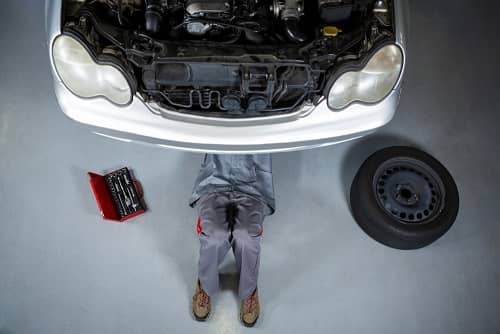
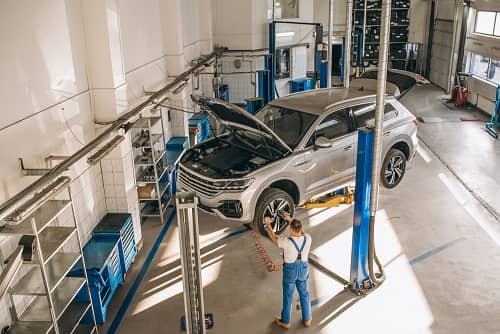
Compliance
When you review the Daewoo Classic Recall History, you’re taking a proactive step to ensure compliance with safety regulations. This process verifies that past defects were fixed, prevents legal penalties, and enhances resale value. Compliance checks protect lives, strengthen consumer confidence, and ensure that the vehicle continues to meet today’s strict safety standards.
Inspect typical Daewoo safety faults
Daewoo Motors was a South Korean automotive company established in 1937 as “National Motors”. Though admired as rare collectibles, Daewoo classics were not free from defects. Running a recall check helps reveal safety risks, ensuring you stay protected while keeping the car’s historic charm intact and valuable.

How to Run Daewoo Recalls?
Get the Daewoo recalls report in under a minute by following these simple steps below.

Locate Your Daewoo VIN
You can find your Daewoo's VIN on the driver's side of the dashboard, visible through the windshield, on a sticker inside the driver's side doorjamb, or on vehicle documents like the registration or insurance card.


Enter your details
Click on the form above, then fill it out with the information about your Daewoo VIN, and click the button to start. No VIN? Use your license plate number instead.


Receive Your Daewoo Recall Report
Your Daewoo recall report will be created in seconds. Your recall record provides instant access to safety information that prevents risks, secures your well-being, and protects your Daewoo’s market value.
What will You Find With The Daewoo Recall Check?
With the Daewoo vehicle history report, you’ll unveil complete details of past recalls along with other essential records tied to your classic. The Daewoo recall check shows:
- Date of recalls: Learn when the defect was flagged and whether it still affects your Daewoo.
- Component that is involved: Knowing the exact Daewoo part at fault helps you understand the scope of the defect.
- Consequences: The consequences will tell you the exact safety threat, so you can decide how urgent it is to get the repair done.
- Action of the affected Austin Healey: A recall signals that your Daewoo has a defect. If recalls were unresolved, your Daewoo could still require repair.
Beyond recalls, the report reveals theft history, accident records, and ownership transfers. This helps preserve your Daewoo’s authenticity, collectible value, and ensures long-term safety, compliance, and reliability, such as:
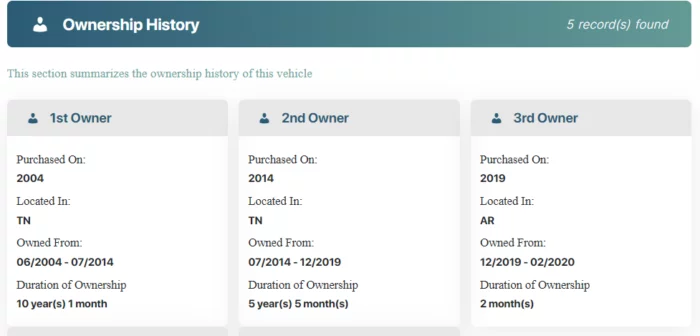
Ownership History
The ownership history of a classic Daewoo confirms originality, shows consistent upkeep, and justifies pricing, ultimately protecting you as a buyer while boosting trust and future resale potential.
Auction History
Auction records show sale status, pricing, and photos, alongside the title & condition of the cars. Reduces hidden risks, strengthens buyer confidence, and keeps your investment safe from scams or impulsive overspending.
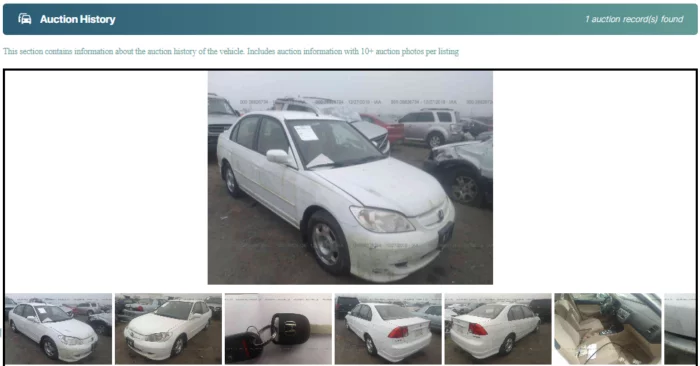
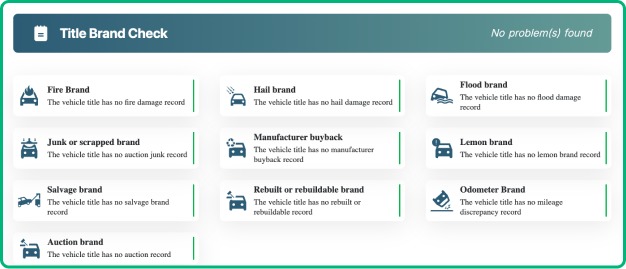
Title Brand Check
Checking ownership and history starts with the vehicle title and supporting records. This step protects buyers by ensuring the car is free from Junk or scrapped brands, or any bad title
Mileage Records
This section gives you the recorded mileage. Keeping thorough mileage records and pairing them with receipts for fuel, maintenance, and depreciation enables you to maximize claims and secure every tax deduction available.
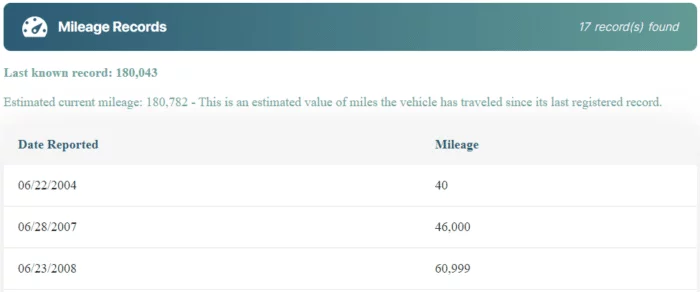

Accident Records
Make sure to check the vehicle report to know what the vehicle has been through by seeing how many accidents the Daewoo has been involved in.
Lien/Loan Records
Lien or loan records mean someone else has financial rights to the vehicle. Buyers should only purchase after verifying that the lienholder has released those claims.
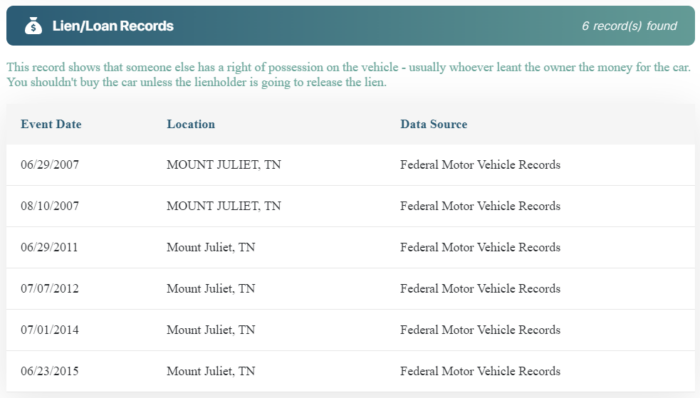
Common Issues Leading to the Daewoo Recall
Daewoo vehicles have been recalled for safety and reliability problems. The NHTSA VIN tool shows incomplete safety recalls from the last 15 calendar years. Older Daewoos can have historical recalls that won’t appear there, even though the campaigns existed.
Below is the breakdown of the recalls:
Smoke/Possible Fire
Engine Sensor Overheating (04V394000)
Some 1998–2002 Lanos, Leganza, Nubira (incl. Puerto Rico). The camshaft position sensor could melt, producing smoke and potentially leading to an under-hood fire. Remedy: replace the camshaft position sensor and install an additional fuse. Owner letters: began Sept. 29, 2004. Affecting around 4,305 units (Puerto Rico filing); broader U.S. engine-sensor recall below.
Sensor Fault
Engine Stalling (04V357000)
Some Lanos/Nubira/Leganza (select years 1997–2001 build span). A defective camshaft position sensor could melt or fail, causing stalling and smoke; the crash risk rises if the engine dies in traffic. Remedy: replace the sensor; add an updated fuse where applicable. Owner letters: Sept. 7, 2004. Units: ~11,576 (manufacturer filing).
Longer Stopping Distance
Brake Hose Defects
Daewoo recalls have often centered on brake hose defects that risk driver safety. In some cases, the outer rubber cracked, causing brake fluid leaks and loss of stopping power. A 1998 recall for the Daewoo 1.5i involved a fuel damper damaging brake lines, while another recall cited ruptures in the front brake hose sheath, requiring redesigned replacements to prevent braking failure.
Aibag Issues
Airbag/Interior-impact compliance (FMVSS 201) (02V131001; related 01V180000).
Some Lanos (airbag mounting bracket energy absorption), some Leganza (A-pillar head-impact padding). Increased head-injury criterion in a crash if interior padding/mounts don’t absorb energy as required. The remedies are to install new airbag mounting brackets (Lanos) and/or A-pillar padding (Leganza). Owner letters received on July 23, 2002 (Lanos airbag bracket); June 2001 (Leganza A-pillar). Affecting up to 58,691 (Leganza campaign) units.
Wheel Bolt Issues (Alloy Wheels without Bushings)
Wheel fastener/wheel detachment risk
Some Daewoo models faced recalls due to alloy wheels lacking steel bushing inserts around bolt openings. This defect increased friction, allowing bolts to loosen and creating a dangerous risk of wheel detachment.
Understanding the Recall Process from Classic Daewoo’s
Understanding recall and maintenance processes for classic Daewoo is crucial. They reveal hidden safety issues, ensure proper working order, and protect reliability. Maintenance records also justify market value, guide restoration budgets, and prevent duplicate work. This transparency provides confidence, strengthens negotiations, and enhances resale value by proving authenticity and care over the vehicle’s lifetime.
Reporting a Problem
Even though Daewoo is no longer an active brand, owners can report safety defects to the NHTSA. The agency reviews each report, and collated data can prompt investigations or recalls
Investigation
Once submitted, each complaint is analyzed by the NHTSA to decide if it identifies a credible safety defect. For vintage models such as the Daewoo, investigators often rely on historical documentation, maintenance logs, and input from long-time owners. This extra scrutiny ensures that the review process preserves authenticity while addressing only significant safety risks relevant to these classic vehicles.
Recalls Management
When the NHTSA verifies a defect, it issues an informational recall. Collectors and restorers use this data to anticipate preventive maintenance, guide accurate restorations, and preserve both the safety and authenticity of these classic vehicles.
How Classic Daewoo Vehicle Recalls Are Handled
Below are the details on how classic Daewoo vehicle recalls are handled
The Manufacturer (Daewoo → GM Daewoo/GM Korea)
Even though “Daewoo” as a U.S. retail brand is gone, the manufacturer side still matters because vehicles were produced under that entity and later under GM Daewoo (formed in 2002; today GM Korea).
When a defect is identified, the manufacturer must notify NHTSA, craft a remedy plan, supply parts/procedures to service networks, and send owner letters. For compliance topics (e.g., FMVSS 201 head-impact), the remedy might be interior padding or new brackets; for defects (e.g., brake hoses), it’s parts replacement; sometimes a software change.
If the campaign falls within the legal window, the remedy is free for the consumer. Manufacturers are also expected to track completion rates and provide reimbursement language if owners previously paid for the fix before the recall. The GM-Daewoo transition didn’t erase these duties; it simply changed who administers them internally.
NHTSA’s Role
NHTSA defines “safety defects,” sets/enforces Federal Motor Vehicle Safety Standards (FMVSS) like 201 (occupant head-impact protection), and runs the SaferCar.gov recall systems. The agency monitors complaints, opens investigations, and (when warranted) ensures manufacturers launch and carry out a recall with a public campaign number (e.g., 02V257000).
NHTSA also operates the public recall lookup that displays incomplete safety recalls from the last 15 calendar years, publishes compliance documents, and provides consumer guidance about rights and responsibilities.
For Takata air bags or other nationwide crises, NHTSA manages priority and parts staging, but for legacy makes like Daewoo, its role is to ensure past campaigns are documented and owners are informed where possible. In short, NHTSA is the referee that makes recalls transparent and ensures the no-charge remedy principle is honored.
Your Role as the Vehicle Owner
For Daewoo owners, the responsibility of preserving safety and history rests largely in their hands. With no factory support, guidance often comes from enthusiast clubs, online forums, and restoration experts. These communities provide knowledge, parts, and solutions for addressing recall-related issues. Backing this with a full vehicle history report allows you to confirm past recalls, track ownership history, and safeguard the long-term value of your classic Daewoo.
Get a Daewoo Window Sticker by VIN
Before getting a classic Daewoo, get the window sticker. The window sticker serves as a trusted reference for classic cars, confirming original parts, options, and specifications, even the MSRP. It allows buyers to verify authenticity, determine value, and recognize modifications.
Collectors rely on this documentation to preserve originality, guide restoration, and maintain accuracy in both presentation and historical record.
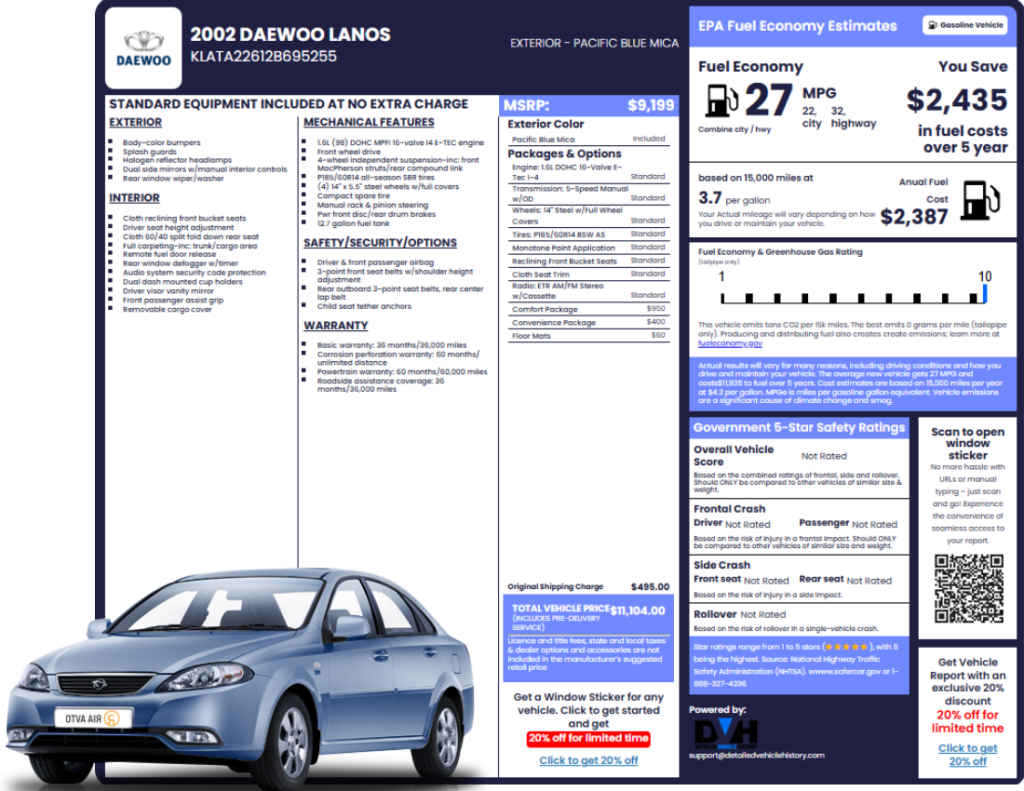
Why Trust Detailed Vehicle History for Your Daewoo Recalls Search?
More than recall data, our Daewoo history report uncovers the full journey of your car. From specifications and mileage to ownership changes, accidents, and liens, you’ll get clarity.
This knowledge helps you verify originality, uncover hidden risks, and confidently secure a Daewoo that’s both authentic and valuable.
Recall Check For Others Manufacturers
FAQ about Daewoo Recalls Check
Does Daewoo still sell cars?
No, Daewoo no longer sells cars. After declaring bankruptcy in 1999, most of its assets were acquired by General Motors in 2002. The company operated as GM Daewoo until 2011, when the Daewoo brand was fully retired and replaced by Chevrolet. And today renamed as GM Korea. Currently, GM Korea produces vehicles that are marketed worldwide under Chevrolet, Buick, and other GM-owned brands.
Why was Daewoo discontinued?
Daewoo was discontinued due to severe financial troubles during the 1998 Asian Financial Crisis, which left the automaker heavily in debt. Its overly aggressive global expansion strategy added further strain. By 2001, General Motors acquired most of Daewoo’s assets, rebranding the company as GM Daewoo. In 2011, the name was retired entirely and replaced by GM Korea, effectively ending the Daewoo brand.
How do I check if my car is recalled?
To check for open recalls on a Daewoo, simply visit the Detailed Vehicle History website and use the “Recall Check” tool. Enter your VIN or license plate number, then click the button to generate a detailed report. This report includes descriptions of any safety issues and repair instructions. Regular recall checks help ensure your Daewoo remains safe, compliant, and up-to-date with manufacturer standards.
What is the most recalled car in history?
The title of “most recalled car” is complex, but Ford’s history dominates the conversation. Between 1970–1980, over 21 million Ford, Mercury, and Lincoln vehicles were recalled for faulty parking gears, followed by a 1996 Ford recall of 22.7 million vehicles for ignition switch fires. These remain the largest recalls by vehicle count in U.S. history.
Is Daewoo now Chevrolet?
Yes. In 2011, General Motors retired the Daewoo brand and reintroduced its vehicles as Chevrolets. The decision followed Daewoo’s 1990s financial collapse and the negative reputation linked to its founder’s corruption scandal. GM renamed its South Korean subsidiary GM Korea and aligned operations with Chevrolet’s global identity, capitalizing on the American brand’s strength, consistency, and recognition across international markets to drive growth and consumer confidence.

